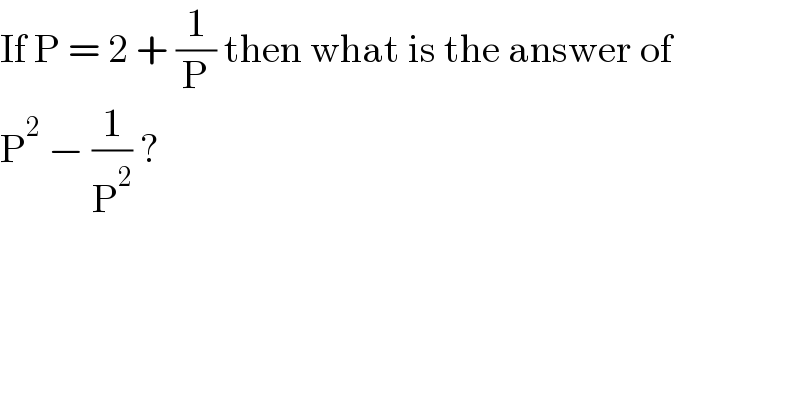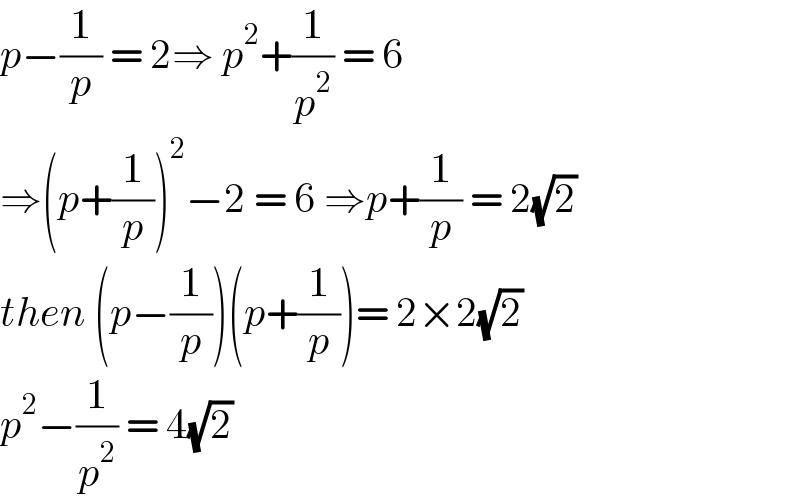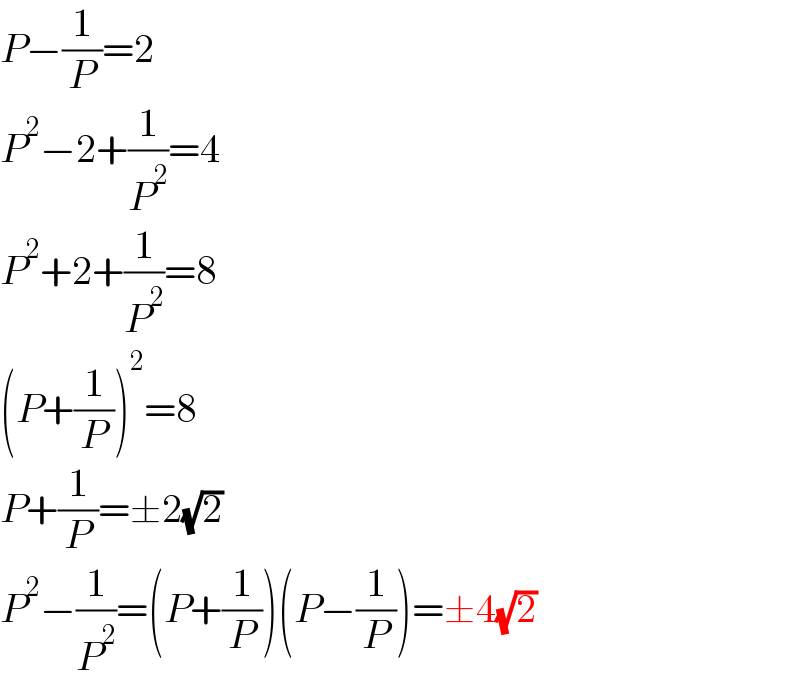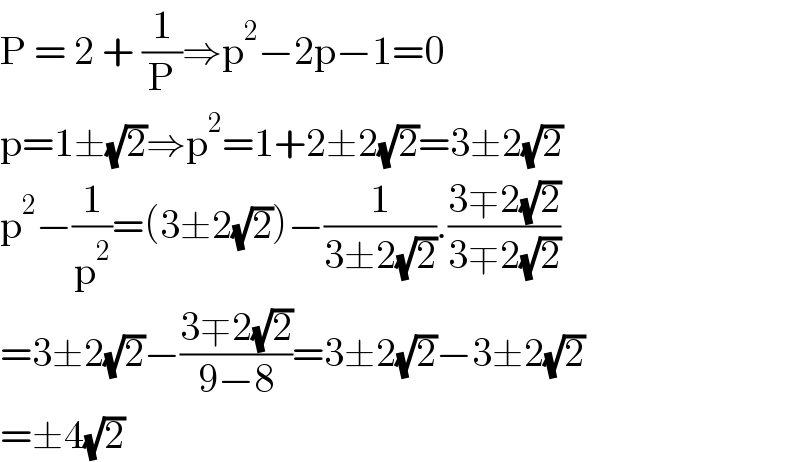Question Number 134135 by Agnibhoo last updated on 28/Feb/21

Answered by Ñï= last updated on 28/Feb/21
![p^2 −(1/p^2 ) =(p−(1/p))(p+(1/p)) =(p−(1/p))[(p−(1/p))^2 +4]^(1/2) =2×(2^2 +4)^(1/2) =4(√2)](https://www.tinkutara.com/question/Q134136.png)
Answered by bobhans last updated on 28/Feb/21

Answered by mr W last updated on 28/Feb/21

Answered by Rasheed.Sindhi last updated on 28/Feb/21

